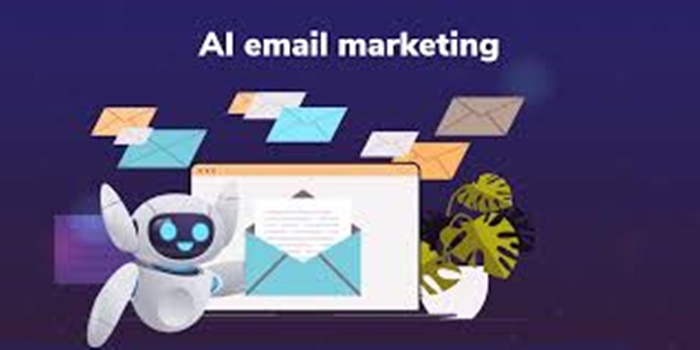In this article, we explained email marketing in world of AI, the impact, the benefits, the strategies, we also talked about the challenges.
Definition
Artificial intelligence email marketing, or AI email marketing, influences computer algorithms to build more specific and optimized campaigns. Through machine learning techniques that analyze customer behavior and automate and personalize content creation, AI can help email marketing teams attain better open rates.
The Impact of AI on Email Marketing:
Hyper-Personalization at Scale: This is arguably the most significant impact. AI analyzes vast amounts of customer data (Browse history, purchase patterns, demographics, engagement with past emails) to create truly individualized experiences.
Dynamic Content: AI can tailor email layouts, content blocks, images, and product recommendations in real-time to match each user’s preferences. For e-commerce, this means smart product feeds showcasing items an individual is most likely to buy.
Customized Messaging: Beyond just products, AI can adjust the tone, language, and even the story told in an email to resonate with a specific recipient.
Predictive Analytics for Optimal Timing and Frequency: No more guessing games. AI can predict:
Optimal Send Times: By analyzing past engagement patterns, AI determines when each subscriber is most likely to open an email, ensuring messages land in the inbox at the peak of their activity. This also accounts for different time zones.
Frequency Regulation: AI can detect early signs of subscriber fatigue and automatically adjust sending frequency to prevent unsubscribes, striking the right balance between staying top-of-mind and being intrusive.
AI can identify customers at risk of disengaging or churning, enabling proactive win-back campaigns with tailored offers or content.
Automated Content Creation and Optimization: AI-powered tools are revolutionizing content development:
Subject Line Optimization: AI analyzes historical performance data to generate compelling subject lines that boost open rates. Some studies suggest AI-generated subject lines can increase open rates by 5-10%.
Email Copy Generation: AI writing assistants can draft entire email campaigns, from welcome sequences to promotional messages, significantly reducing the manual effort and time required, especially for businesses with large customer bases.
AI automates and accelerates the testing of multiple variables (subject lines, CTAs, content, images) simultaneously, rapidly identifying the highest-performing combinations.
Advanced Segmentation: AI moves beyond basic demographic segmentation to create highly precise audience segments based on real-time behavior, purchase history, and intricate customer journeys. This allows for incredibly targeted campaigns.
Enhanced Efficiency and Cost Savings: Automating repetitive and time-consuming tasks like segmentation, scheduling, and basic performance analysis frees up marketers to focus on strategy, creativity, and higher-value activities. This can significantly reduce overhead costs and enable smaller teams to achieve more.
Improved Deliverability and Spam Filter Avoidance: AI can help generate emails that mimic human behavior and adhere to best practices, increasing the chances of bypassing spam filters and reaching the intended inbox.
Benefits of AI in Email Marketing
- Hyper-Personalization
One of AI’s biggest impacts on email marketing is the ability to deliver highly personalized content tailored to individual preferences and behaviors. Beyond simply inserting a recipient’s name, AI analyzes engagement patterns to recommend products, suggest content, and determine optimal send times for each subscriber.
- Predictive Analytics
AI models can forecast customer actions, such as likelihood to open an email, click a link, or make a purchase. This predictive capability allows marketers to prioritize high-value prospects and tailor campaigns for maximum conversion potential.
- Automated Content Creation
Natural language generation (NLG) and AI copywriting tools assist marketers by drafting email subject lines, body copy, and calls to action that have been optimized based on data from past campaigns. This reduces the creative workload while maintaining high engagement rates.
- Enhanced Segmentation
Traditional segmentation often relies on basic demographic or past purchase data. AI enables dynamic segmentation that evolves in real time based on customer behavior, enabling marketers to send more relevant messages at the right moment.
- Improved Deliverability
AI helps monitor sender reputation and email performance to reduce spam risks. It can adjust sending patterns and optimize message formats to maximize inbox placement rates.
Strategies to Leverage AI in Your Email Marketing
4.1 Invest in Data Quality and Integration
AI is only as good as the data it learns from. Integrate your CRM, web analytics, purchase history, and social data for the richest insights.
Start Small with AI-Assisted Features
Begin with AI-powered subject line testing or send-time optimization before rolling out fully automated campaigns.
Continuously Train and Monitor AI Models
Regularly update your AI models with fresh data and monitor results to avoid “model drift” and keep performance high.
Balance Automation with Human Creativity
AI can optimize and personalize, but authentic brand voice and storytelling need human oversight.
Prioritize Privacy and Compliance
Be mindful of GDPR, CCPA, and other data privacy laws when collecting and processing data for AI models.
Challenges and Ethical Considerations
Over-Reliance on AI: Risk of overly robotic or formulaic emails that lack human warmth.
Data Privacy Risks: Managing sensitive customer data responsibly is critical.
Algorithm Bias: AI trained on biased data can reinforce stereotypes or exclude minority audiences.
Transparency: Should marketers disclose AI involvement in content creation?
Spam and Manipulation Concerns: Could AI-generated emails flood inboxes or manipulate emotions unethically?
Conclusion
Artificial Intelligence is not just an enhancement but a revolution for email marketing. It empowers marketers to deliver hyper-personalized, timely, and engaging messages at scale — driving stronger customer relationships and business growth.
READ: Email Marketing Types and Strategies

